Year 2021 face_with_colon_three
Georgia Tech quantum field theory researcher Tim Andersen grounds reality in Will, rather than Mind, as envisioned by Bernardo Kastrup and the cosmopsychists.
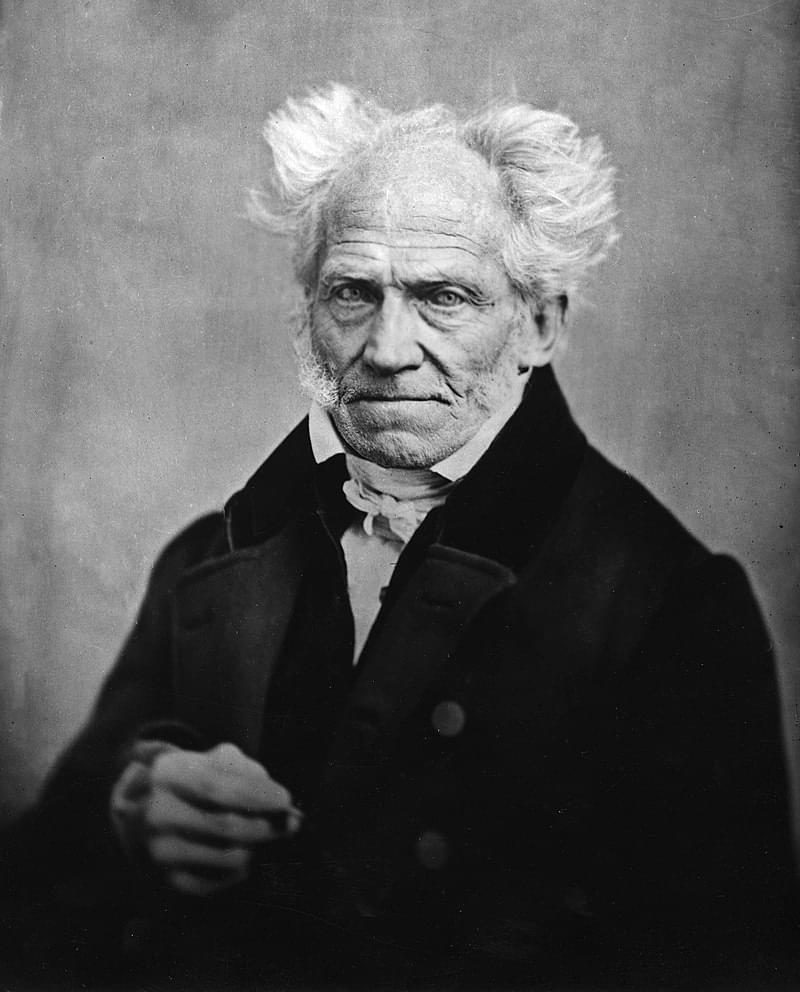

Summary: For the first time, Google Quantum AI has observed the peculiar behavior of non-Abelian anyons, particles with the potential to revolutionize quantum computing by making operations more resistant to noise.
Non-Abelian anyons have the unique feature of retaining a sort of memory, allowing us to determine when they have been exchanged, even though they are identical.
The team successfully used these anyons to perform quantum computations, opening a new path towards topological quantum computation. This significant discovery could be instrumental in the future of fault-tolerant topological quantum computing.
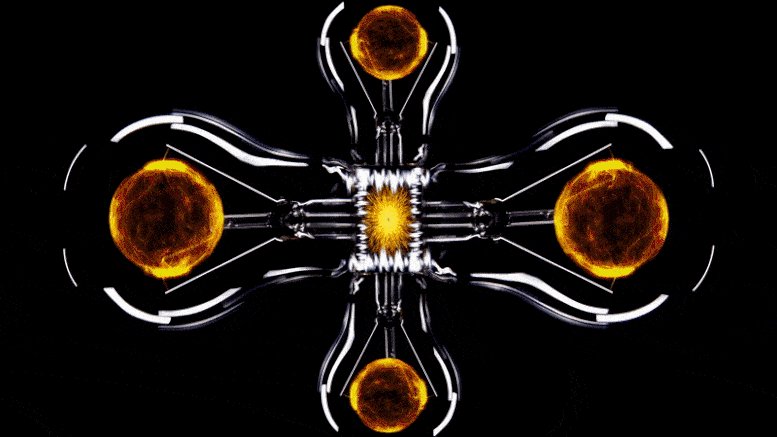
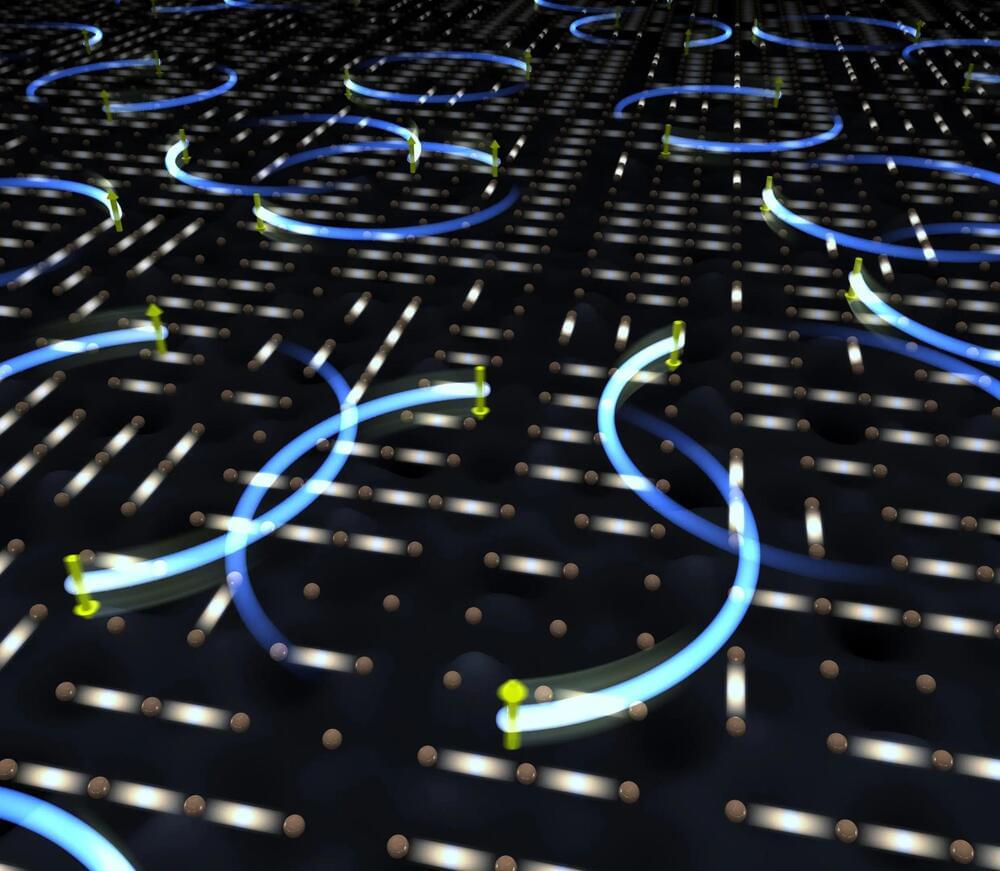
A novel protocol for quantum computers could reproduce the complex dynamics of quantum materials.
RIKEN researchers have created a hybrid quantum-computational algorithm that can efficiently calculate atomic-level interactions in complex materials. This innovation enables the use of smaller quantum computers or conventional ones to study condensed-matter physics and quantum chemistry, paving the way for new discoveries in these fields.
A quantum-computational algorithm that could be used to efficiently and accurately calculate atomic-level interactions in complex materials has been developed by RIKEN researchers. It has the potential to bring an unprecedented level of understanding to condensed-matter physics and quantum chemistry—an application of quantum computers first proposed by the brilliant physicist Richard Feynman in 1981.
It could be a strange way of achieving immortality—or at least, everlasting life for copies of you.

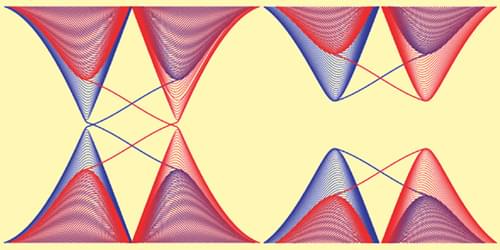
Graphene’s valence and conduction bands meet at a point, making the single-layer crystal a semimetal. Researchers have predicted that spin-orbit coupling of carbon’s outer electrons opens a narrow gap between these bands—but only for the crystal’s bulk. Along the edges, spin-dependent states bridge the band gap, allowing the resistance-free flow of electrons: a quantum spin Hall effect. The weakness of carbon’s spin-orbit coupling means that this quantum spin Hall effect is too fragile to observe, however. Now Pantelis Bampoulis of the University of Twente in the Netherlands and his collaborators have seen the quantum spin Hall effect in graphene’s germanium (Ge) analog, germanene [1]. Furthermore, they show that germanene’s structure—a honeycomb like graphene’s, but lightly buckled—allows the quantum spin Hall effect to be turned off and on using an electric field.
Bampoulis and his collaborators grew a germanene monolayer on a buffer layer of Ge atop a substrate of Ge2Pt. Using a scanning tunneling microscope, they discriminated between the edge and the bulk states of germanene and measured how current depended on voltage under an external electric field perpendicular to the layer. At low field strengths, germanene exhibited a robust quantum spin Hall effect due to germanium’s strong spin-orbit coupling. At high field strengths, the edge states no longer bridged the gap and germanene became a normal insulator. But at a critical intermediate value, germanene underwent a topological phase transition as the otherwise separated conduction and valence bands in the bulk came together and the symmetry that sustained the quantum spin Hall effect was destroyed.
The robustness of germanene’s quantum spin Hall effect and the fact that it can be turned off with an applied electric field suggest that the material could be used to make room-temperature topological field-effect transistors.

The University of Illinois Urbana-Champaign’s nuclear physics group is participating in the nEDM experiment at Oak Ridge National Laboratory, aiming to measure the neutron’s electric dipole moment to constrain theories in particle physics. The researchers aim to construct sensors for the nEDM experiment and explore their potential applications in quantum information science. The unique quantum properties of nitrogen-vacancy diamond make it a promising candidate for quantum sensing and quantum memory.
The nuclear physics group at the University of Illinois Urbana-Champaign is looking for evidence of new physics in neutrons, electrically neutral particles that hold atomic nuclei together with an interaction called the strong force. Faculty and researchers are participating in the nEDM experiment at Oak Ridge National Laboratory which will measure the neutron’s electric dipole moment, a property that allows neutrons to interact with electric fields despite their neutrality. A precise measurement will constrain theories extending the current standard model of particle physics. To achieve this, the researchers must accurately measure subtle changes in very strong electric fields.
Professor of Physics Douglas Beck has been awarded a grant from the Department of Energy to develop sensors based on nitrogen-vacancy diamond, a material whose quantum properties at low temperatures make it unusually sensitive to electric fields. His research group has shown that the material can measure strong electric fields, and the award will allow the researchers to construct sensors ready to use in the nEDM experiment. In addition, the material’s quantum properties make it a promising candidate for quantum information science. The researchers will also explore these potential applications.
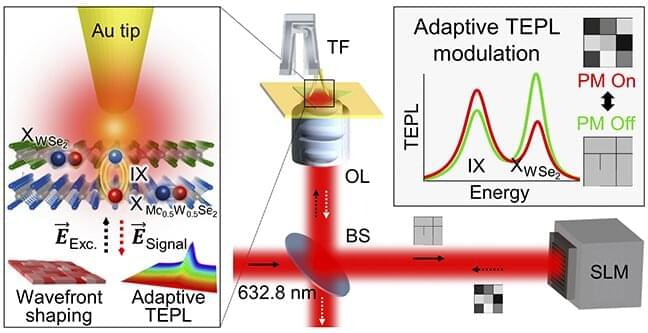
How can Marvel movie character Ant-Man produce such strong energy out of his small body? The secret lies in the transistors on his suit that amplify weak signals for processing. Transistors that amplify electrical signals in the conventional way lose heat energy and limit the speed of signal transfer, which degrades performance. What if it were possible to overcome such limitations and make a high-performance suit that is light and small but without the loss of heat energy?
A POSTECH team of Professor Kyoung-Duck Park and Yeonjeong Koo from the Department of Physics and a team from ITMO University in Russia led by Professor Vasily Kravtsov jointly developed a nano-excitonic transistor using intralayer and interlayer excitons in heterostructure-based semiconductors, which addresses the limitations of existing transistors. The research was recently published in the journal ACS Nano.
Excitons are responsible for light emission of semiconductor materials and are key to developing a next-generation light-emitting element with less heat generation and a light source for quantum information technology due to the free conversion between light and material in their electrically neutral states.
Ragsxl/Wikimedia Commons.
Unlike classical computers, which operate on binary bits (0 and 1), quantum computers operate on quantum bits or qubits. Qubits can exist in a state of superposition. This means that any qubit has some probability of existing simultaneously in the 0 and 1 states, exponentially increasing the computational power of quantum computers.